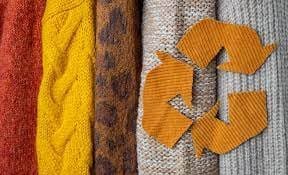A new sustainability initiative for the fashion sector is aiming to bring together eight companies working on innovative solutions to reduce the environmental impact of materials processing, one of the most resource-intensive stages of the fashion supply chain.
Sportwear giant Adidas, luxury fashion brand Kering, US clothing giant PVH Corp, Indian textile manufacturer Arvind Limited and Welspun India have partnered with the Fashion for Good initiative on the scheme, which will initially focus on trialing “dry processing” technologies that can reduce the environmental impact of pre-treatment and coloration of cotton, polyester, blends, denim, and wool.
Pre-treatment, coloration, and finishing of textiles typically take place in large tanks or baths which require vast amounts of energy, heat, and water. The chemicals-intensive process releases large amounts of toxins into the water and is responsible for 52 percent of emissions in the fashion supply chain, according to Fashion For Good.
A shift to dry processing techniques that use less energy and no or minimal water during materials processing could provide a major “lever” for reducing the overall environmental impact of the textiles industry, the group said.
New players and technologies to drive change
The eight innovations selected for the D(R)YE Factory of the Future scheme have the potential to reduce emissions by up to 89 percent and cut water consumption by between 83 percent and 95 percent, Fashion for Good said. Among the technologies being trialed through the scheme are plasma and laser treatments, spray dyeing, foam dyeing, and supercritical CO2, it added.
“Textile processing is the largest contributor to carbon emissions in the supply chain and a shift to mostly dry processing is crucial for the path to net zero,” said Katrin Ley, managing director at Fashion for Good.
The eight innovators picked to take part — Alchemie Technologies, Deven Super criticals, eCO2Dye, GRINP, Indigo Mill Designs, imago, MTIX, and Stony Creek Colors — will be expected to collaborate with each other and work closely with the scheme’s partners.
Ley said testing the technologies in combination with one another would be critical to unlocking their full decarbonization potential.
“Given the interdependencies in the processing stages, a stand-alone assessment of solutions is not sufficient,” she said. “By validating a combination of technologies, we can unlock the full potential of those solutions.”
A report will be published in late 2022 that shares the results from the evaluations, as well as next steps for the wider implementation of dry processing technologies and techniques,

